Marketing your business is an investment in your business. And as with any investment, you should expect a return greater than the cost. With event marketing, as with all marketing, you need to be able to see a return on your investment. That return needs to be quantified by the goals you set for the specific event.
As with any other marketing tool, event marketing should ideally be planned and executed with a specific marketing goal in mind. Naturally, you want to ensure that your marketing spend is being put to good use, and that the time and money you spend on your event will show returns.
Event marketing goals are the first things you should decide on before planning your next event. Follow this guide to ensure that your next event is well thought out, targeted, and primed to yield good results for your investment.
Why Event Marketing Goals Matter
A “hope-for-the-best” approach to marketing is not likely to get you very far.
As noted clinical psychologist, lecturer and educator Fitzhugh Dodson said, “Without goals, and plans to reach them, you are like a ship that has set sail with no destination”.
One of the major advantages of digital marketing as opposed to brand advertising that came before it, is that fact that digital marketers have hard data they can use to make informed decisions, measure the results, and adjust the approach as necessary to reach their goals.
It may not be as simple, but everyone should do the same with event marketing. Whatever you spend on an event, from your space rental, to marketing materials to registration fees, if applicable, to staff wages, should be aimed at generating a return on the event. You won’t generate the best returns simply by trying your luck. You need to know what you want to achieve in order to determine which events are best suited to meeting your goals, and then how to stage your event for the best possible results.
Event marketing goals might include:
- raising brand awareness
- generating revenue
- improving customer service
- driving a growth in sales
- gaining leads
Your branded marketing materials should be chosen, designed and executed with these goals in mind. As just one example, if your goal is to generate sales leads, your tablecloths or banners can become lead-generation tools by including QR codes that visitors can scan, leading them to a form they can fill out to sign up for more information.
Defining Event Marketing Objectives that Align with Your Brand Identity
Now that we understand the importance of event marketing goals, the next question is – how should you go about setting them? A good way to get started is to ask yourself and your team the following questions and demand quantifiable answers:
- Why do we want to host or attend this event? You can’t just answer, “to promote our brand,” or “to increase visibility.” You need to focus on drilling down to a very particular objective. Maybe you want to target a specific, new audience, or increase your sign-ups or lead list by x amount. Whatever your goal is, be as specific as possible.
- Who is our audience? You don’t want to try accessing too broad a market through an event. Each event will have a relatively narrow, focused group of attendees. You need to decide which group of people you want to target.
- What will we need to make this event a success? What kind of event will you need to stage or attend? How will you approach it? What marketing materials will you need to gather?
- How can we measure our success? Decide what your metric will be. Do you want to gather a specific number of leads? Perhaps your goal is to meet with a select few clients or prospective clients. Whatever you want to achieve, be sure to make it measurable. If possible, put a dollar amount to that. A lead is worth $X; a client is worth $Y.
Crafting SMART Goals for Events
Use the SMART principle to plan your event. In case you need reminding, SMART stands for:
- S: Specific
- M: Measurable
- A: Achievable
- R: Relevant
- T: Time-bound
Specific: What exactly do you want to achieve, and how exactly will you work towards it? Measurable: Empower yourself with metrics you can use to determine how well your event is going. For example, it could be a simple foot count, a particular number of paying attendees, or a goal to gather a certain number of new contacts. Once again, try to find ways to incorporate your marketing collateral into your goals and the methods you can use to measure them. Perhaps your gifting can also work as an easy way to count visitors. Gifts can also provide a way for visitors to become leads, much like the tablecloth example mentioned earlier.
Achievable: You also need to ensure that your plan is achievable. You may want to gather 1,000 new leads, but is that realistically achievable in the context of your event? Think about your resources and set your goals accordingly. Think big, but don’t set goals you would never be likely to meet.
Relevant: Your goals also need to be relevant to your overall business goals. Think carefully about whether the event you have in mind is really suitable for your company and its audience.
Time-bound: Add a time dimension to your goals. It might be to collect 100 new leads by the time the first day of the event is over, for example.
Key Performance Indicators (KPIs) for Event Marketing
When it comes to measuring the success of your event, you will need a set of event KPIs. Here are a few ideas you might consider:
- Attendance numbers: Keep it simple with a straight foot count.
- Attendance quality: Make it more sophisticated by concentrating on who attended the event and what difference that makes to your goals.
- Demand generation: Count your new leads of the numbers of meetings or demos you hosted.
- Spend efficiency: Calculate your cost per lead, opportunity, or attendee.
Once again, you can be creative with your marketing materials, and devise ways to incorporate them into your metrics. Consider including QR codes or social media handles on your promotional artwork, or providing a link that visitors can use to fill in short surveys that will enable you to calculate your net promoter score (NPS). In this way, your branding materials can bring your customers to you both physically and virtually.
The Importance of Product Branding for Event Marketing
Whatever your event marketing goals are, you will need quality product branding to help make your event successful. Red Iron Brand Solutions has whatever you need, from tents and backdrops to banners and flags, and more. Contact us to get a quote on your custom-branded event marketing materials. See our premium event products and chat with us online today at https://redironbrand.com/, call us at 800-325-3824 or email us at sales@redironbrand.com for more information on products and services.


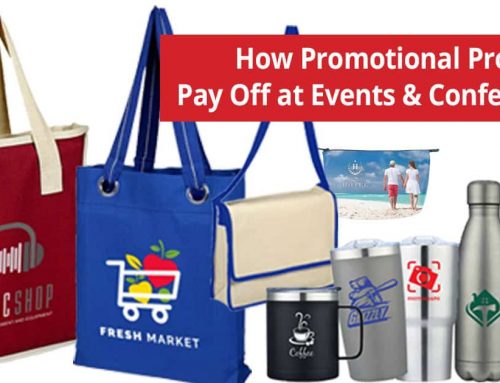
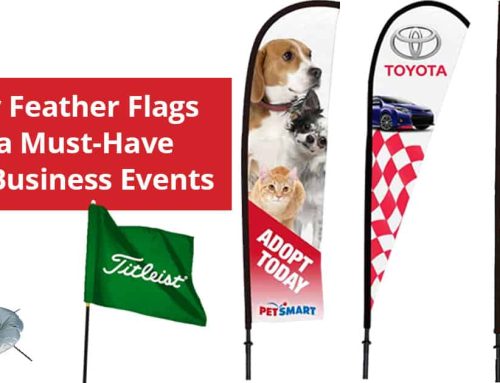
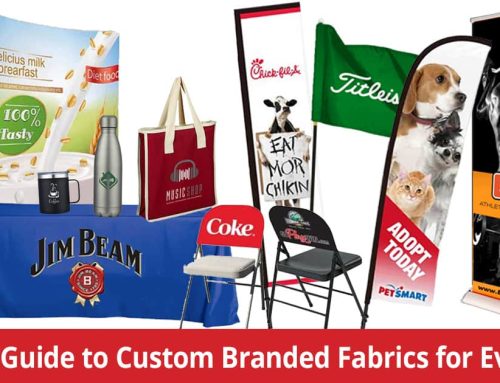
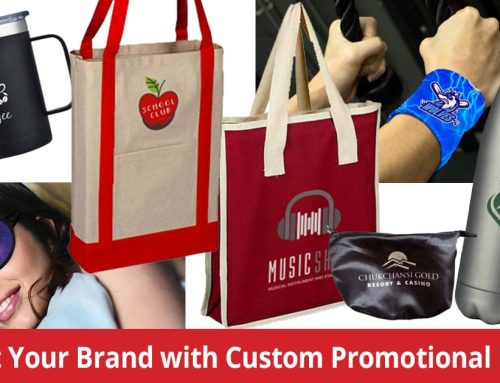
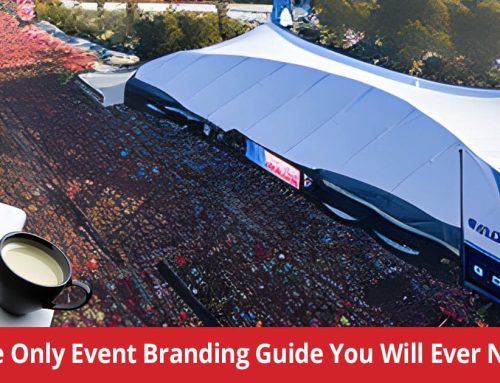
Leave A Comment